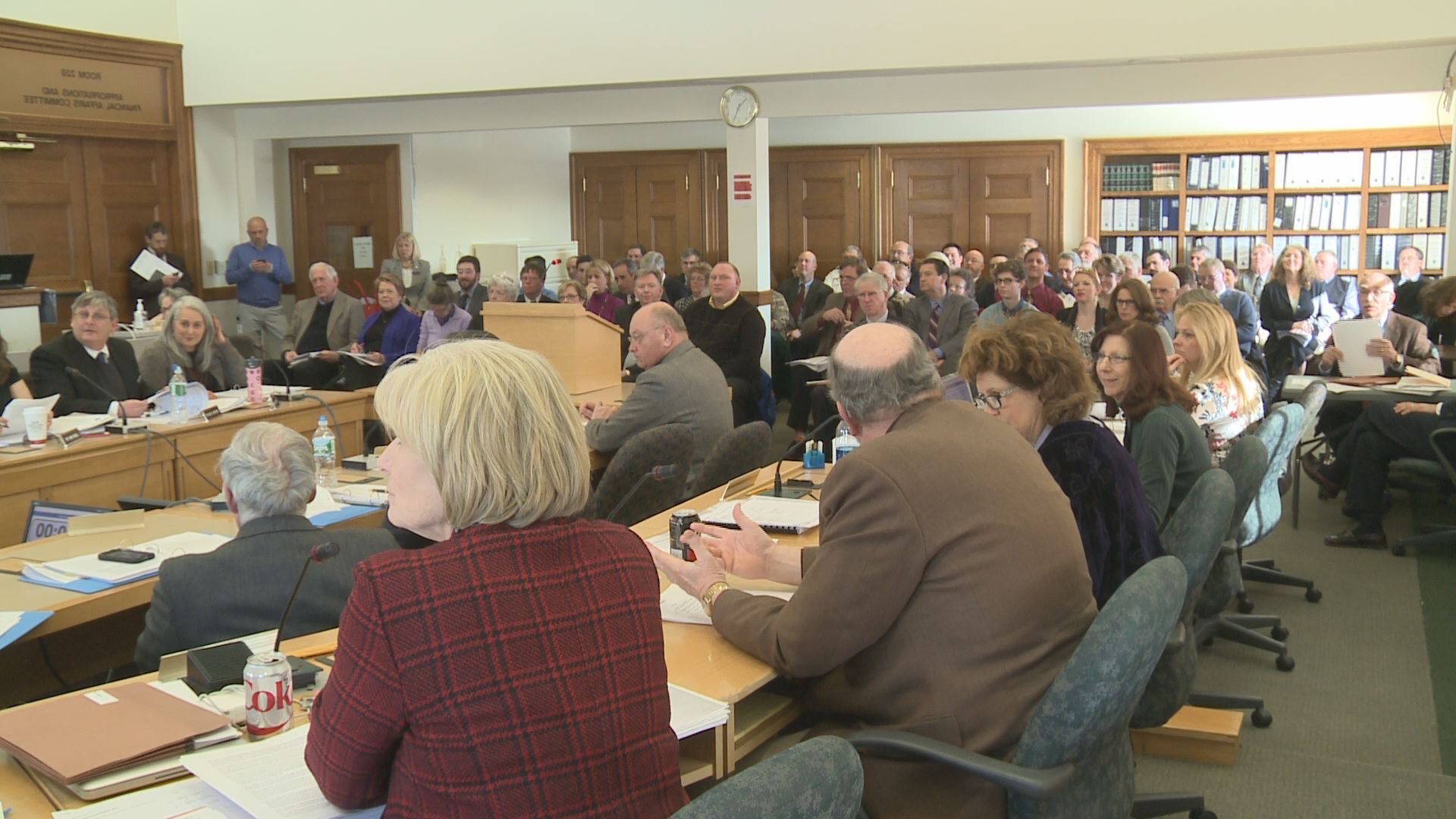AUGUSTA, Maine (NEWS CENTER) -- Town and city leaders packed into the State House on Wednesday to blast the governor's proposal that would eliminate state revenue sharing aid for local government.
The program has been in place for about 40 years, and is designed to give communities a share of the state tax revenues. The program is supposed to distribute five percent of the sales and income tax revenue each year. However, that amount has been cut back under Democratic Gov. John Baldacci and Republican Gov. Paul LePage. The Maine Municipal Association said municipalities should be sharing about $158 million this year, but instead are sharing $62.5 million. The governor's budget would provide that same amount for one more year, then eliminate revenue sharing completely.
At the State House, a long line of people signed up to speak on the issue in front of the Appropriations and Taxation Committees Wednesday. The line included managers, councilor, selectmen and other local officials. Most said that eliminating revenue sharing will hurt services and force towns and cities to raise property taxes.
"Last year we had the longest unpaid property tax list in the history of the town. That list will get longer if we do not have revenue sharing," said Ernest James, a selectman from the small town of Charlotte.
The LePage Administration, through Finance Commissioner Richard Rosen, said the goal of the budget is to reduce income taxes by 40 percent. That cut, said Rosen, would put more money into taxpayer pockets, rather than municipal budgets. Governor LePage has said in recent interviews that even if local property taxes go up, individual taxpayers will still save money. He has also called for local government to become more efficient.
Many legislators, in both parties, are opposed to eliminating revenue sharing. The Appropriations Committee will consider that and other portions of the budget as it continues hearings over the next four-and-a-half weeks.


